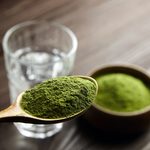Eating Fresh from A to Z
Nothing beats biting into a freshly picked fruit or vegetable, but most city-dwellers don’t have that luxury. Here’s how to get, store, and prepare supermarket fruits and veggies for maximum freshness and cost efficiency.
Admirable Asparagus
Though it is rarely cheap, asparagus is delicious, nutritious, and less costly if purchased in season. If you see it at a good price, buy a bunch with firm stems and heads intact. At home, place the asparagus with the ends in water (like a bouquet of flowers). Dampen a paper towel or washcloth and drape it gently over the asparagus tips. Place a piece of plastic wrap (or the bag the asparagus came in) over the towel and store in the refrigerator. The asparagus will keep for almost a week this way.
Berry Good
Don’t let fresh berries get soggy! Store them in the refrigerator in the open-weave baskets from the store or in a colander, if you picked them yourself. Do not wash berries until just before you are going to eat them.
Chill berries before washing them, because cold berries are less likely to bruise or bleed during washing than those at room temperature.
Frozen Treats
To freeze berries, wash them and pat them dry. Lay the berries in a single layer on a baking sheet lined with a paper towel and freeze until the berries are hard (about one hour). Transfer the frozen berries to self-sealing plastic bags, label, date, and return to the freezer. Use within nine months.
The Juice On Citrus
When lemons, limes, oranges, and grapefruits are at their peak, they are also least expensive. Buy in bulk, store some for eating and using in recipes, and use the rest to make a large batch of each kind of juice.
Before juicing oranges, lemons, or limes, grate the rind and store the zest in the freezer. The next time a recipe calls for grated zest, you’ll be good to go.
After the zest is removed, submerge the fruit in hot water for 15 minutes and then roll it on a counter, pressing down as you roll; this releases the juice before squeezing.
Pour the juice into ice cube trays and freeze it. Transfer the cubes to labeled and dated self-sealing plastic bags. Whenever citrus juice is called for, thaw one cube for each 2 tablespoons of juice you need.
Mushroom Magic
Button or white mushrooms can often be bought on sale, but the more exotic varieties tend to stay on the pricey side, so make a little go much longer this way: Mix a small amount of dried specialty mushrooms with a much larger amount of button mushrooms. The intense flavor of the exotic dried mushrooms will saturate the mild, inexpensive button variety.
Store mushrooms in paper bags in the main section of the refrigerator. Plastic bags and produce drawers reduce air circulation, leading to slimy, quickly spoiled mushrooms.
Clean mushrooms with a damp towel or mushroom brush just before preparing them. Never soak mushrooms; it robs them of flavor and nutrients, such as phosphorus, magnesium, potassium, and selenium.
Pick a Peck of Peppers
Sweet peppers, with the exception of green, can often be high-priced. If you spot a good sale on yellow, orange, or red peppers, buy them and freeze the extras.
Peppers are among the few vegetables that require no blanching before freezing. Cut, seed, and slice or dice them, and freeze them in dated, self-sealing plastic bags.
Root Veggies
When shopping for root vegetables, such as onions, potatoes, carrots, and beets, look for firm surfaces with no cracks. Store onions and potatoes in a totally dark, cool, dry place. Other root vegetables can be refrigerated.
Tutti Fruity
Size matters: If you are planning to eat fruit raw, buy the smallest pieces you can find. You’ll probably be able to buy more pieces of fruit per pound this way. But if you are planning to cook with the fruit, buy larger (and fewer) pieces, so you will have less fruit to wash, peel, core, pit, and chop.
Sneaky shoppers: When a fruit is in season, check for sales on its frozen counterparts. For example, when peaches are in season, the demand for frozen peaches drops, and the market may want to sell them. Stock up and take advantage of the lower prices.
Z is for Zucchini
If you want to take advantage of seasonal sales, shred the zucchini and freeze in self-sealing bags. Use shredded zucchini in soups or breads.



